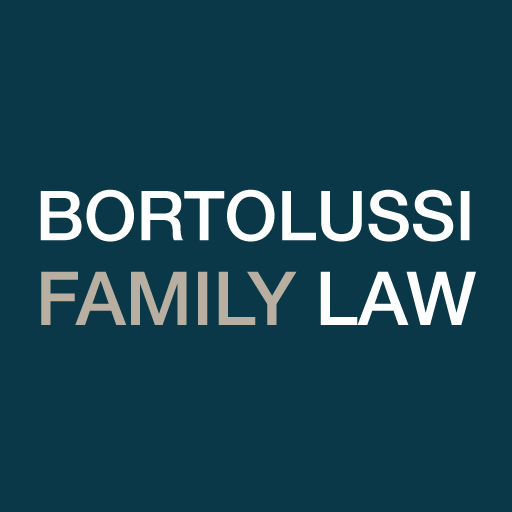Family Law Mediation

Family Mediation Lawyers and Mediators in Vaughan serving York Region, Toronto & Peel
Family law mediation is a process in which the parties agree to meet to discuss and resolve their issues using a neutral and unbiased mediator to facilitate their negotiations. Unlike litigation or arbitration, mediation does not end with a decision-maker imposing a decision on the participants. Rather, the couple is given the freedom to agree to their own terms, with the aid of a professional to guide the discussion and reduce conflict. Mediation can often be more efficient than litigation, allowing the parties to move forward in their new lives more quickly.
At Bortolussi Family Law, all of our lawyers represent clients in family law mediations.
Our firm’s namesake, Lorraine A. Bortolussi, is an accredited family mediator with the Ontario Association for Family Mediation. She completed the Harvard University Mediation Workshop and earned a Master of Laws in Alternative Dispute Resolution. Lorraine developed the curriculum used in the Family Law course in the York University Family Mediation Certificate program and was the inaugural instructor. Lorraine regularly mediates for parties with legal counsel present and without legal counsel present at the mediation.
When Is Mediation Appropriate?
When a couple separates, even amicably, they often realize their ability to discuss and resolve the issues directly with one another is tainted by feelings of hurt and anger from the breakdown of their relationship.
By appointing a trained mediator to oversee the process, a couple is often better able to cut through the hurt and instead focus on finding a mutually agreeable resolution to their outstanding issues.
Mediation is strongly recommended when both parties are prepared to enter into negotiations in good faith to resolve the issues arising out of the dissolution of their relationship. Both must be prepared to provide complete financial disclosure and be forthcoming with other information, at least to the mediator.
Mediation works very well when there are many issues to be resolved. However, it can also be very effective when there is only one issue in question.
The Benefits of Mediation
A successful mediation will ultimately help both sides in a dispute to resolve their issues with minimal conflict, a high level of mutual respect, and at a more reasonable cost than court proceedings. The process is extremely flexible, easily tailored to accommodate the needs of parties and helps parties maintain a sense of control over the process by encouraging input and involvement. Parties also select the mediator, allowing them to choose someone they’re comfortable with, and someone with specialized experience in specific areas of family law, if desired.
Even in high conflict situations, a skilled mediator can structure the mediation process so that both parties feel that they are able to have their needs and interests addressed. Solutions that come out of mediation are ultimately those of the parties and are not imposed by the mediator. Any resulting agreements are therefore more likely to be honoured when entered into voluntarily.
Mediation is especially beneficial whenever children are involved. By design, mediation is structured to minimize conflict, which provides an ideal environment for establishing parenting arrangements in the best interest of the children. The relationship between the parents, although changed, is able to continue in a civil and respectful manner for the sake of the children. Reducing the conflict in the lives of the children is one of the greatest ways a parent can show their love for their children. The skills learned during mediation can also help the parties communicate more effectively long after the mediation has been completed.
The Memorandum of Understanding: Documenting Terms Agreed Upon at Mediation
Mediation can assist with moving both parties towards a separation agreement by getting them to come to agreement on some or all the issues arising from their separation. Following each mediation session, the mediator will prepare and send progress notes to each party. The notes will include any agreements made by the parties during that session and set out the follow-up items for both spouses/partners to complete before they return to the next mediation session or that are required to complete the separation agreement.
The points of agreement reached at the end of the mediation process will be compiled into a Memorandum of Understanding by the mediator. This memorandum can then form the basis for the parties’ lawyers to draft a comprehensive separation agreement. The final separation agreement is then signed on the legal advice of the parties’ respective lawyers. Unless the Memorandum of Understanding is signed and duly witnessed as required under the Family Law Act, the Memorandum of Understanding is not itself a binding agreement.
The separation agreement will contain the terms of the Memorandum of Understanding and any required additional wording to give effect to the agreement and nuances that the parties intend and agreed to at the mediation. This gives the parties time to reflect on and confirm their position without the hurry or pressure they may feel at the end of a mediation session to finalize a binding agreement. However, if the spouses feel that the other party may renege on the terms agreed to before a formal separation agreement is finalized, they may agree to duly sign the Memorandum of Understanding at the end of the mediation session.
A signed and binding Memorandum of Understanding should only be expected at the mediation session if the parties’ lawyers are present and enough time remains at the mediation session to draft, review and duly sign the document. This requires that the parties be prepared to sign the general terms of the agreement without further details and wording to flesh out the general terms. If there are any further details to be included or confirmed, the parties should avoid signing any documents at the mediation session.
What Is the Difference Between a Memorandum of Understanding and a Separation Agreement?
Essentially the memorandum of understanding functions as a promise to enter into a contract and the separation agreement is the contract itself.
The below table outlines the clear differences between the two:
| COMPARE | SEPARATION AGREEMENT | MEMORANDUM OF UNDERSTANDING |
| Definition | A separation agreement is a legally binding contract that binds the parties. It resolves, by the agreement of the parties, the issues arising out of the separation. | A Memorandum of Understanding describes the terms of an agreement without being legally binding or involving the transfer of finances. Without being formally signed, witnessed and dated, with the benefit of legal advice, it is not binding. |
| Traits | Offer made and accepted. | Offer. Acceptance of that offer. Intentions for the separation agreement. Consideration for the terms of the separation agreement. |
| Enforceable in a court of law? | Yes, sometimes. | No (with exceptions). |
| Binding | Yes, always, presuming the agreement is deemed to be legally valid. | Only if the MOU is signed with valid consideration given. |
| Form | Must be in writing, signed in accordance with the formalities of the Family Law Act. | Written or oral agreement. |
Source: Legaldictionary.net
Contact Bortolussi Family Law in Vaughan for Mediation Representation or Family Mediation Services
At Bortolussi Family Law, our divorce lawyers are experienced representing clients in family mediation. Our accredited Family Mediator provides experienced, fair, and knowledgeable management of your mediation.
All of our lawyers work with clients through mediation by diligently advocating for their rights and protecting their interests while maintaining a healthy and productive dynamic with their former spouse or partner whenever possible. Our lawyers focus on securing a successful result for each client, while also setting them up to move forward in a healthy way once the process is over. To discuss your circumstances and learn about the options available to you, please reach out to us online or by phone at 416-987-3300.






